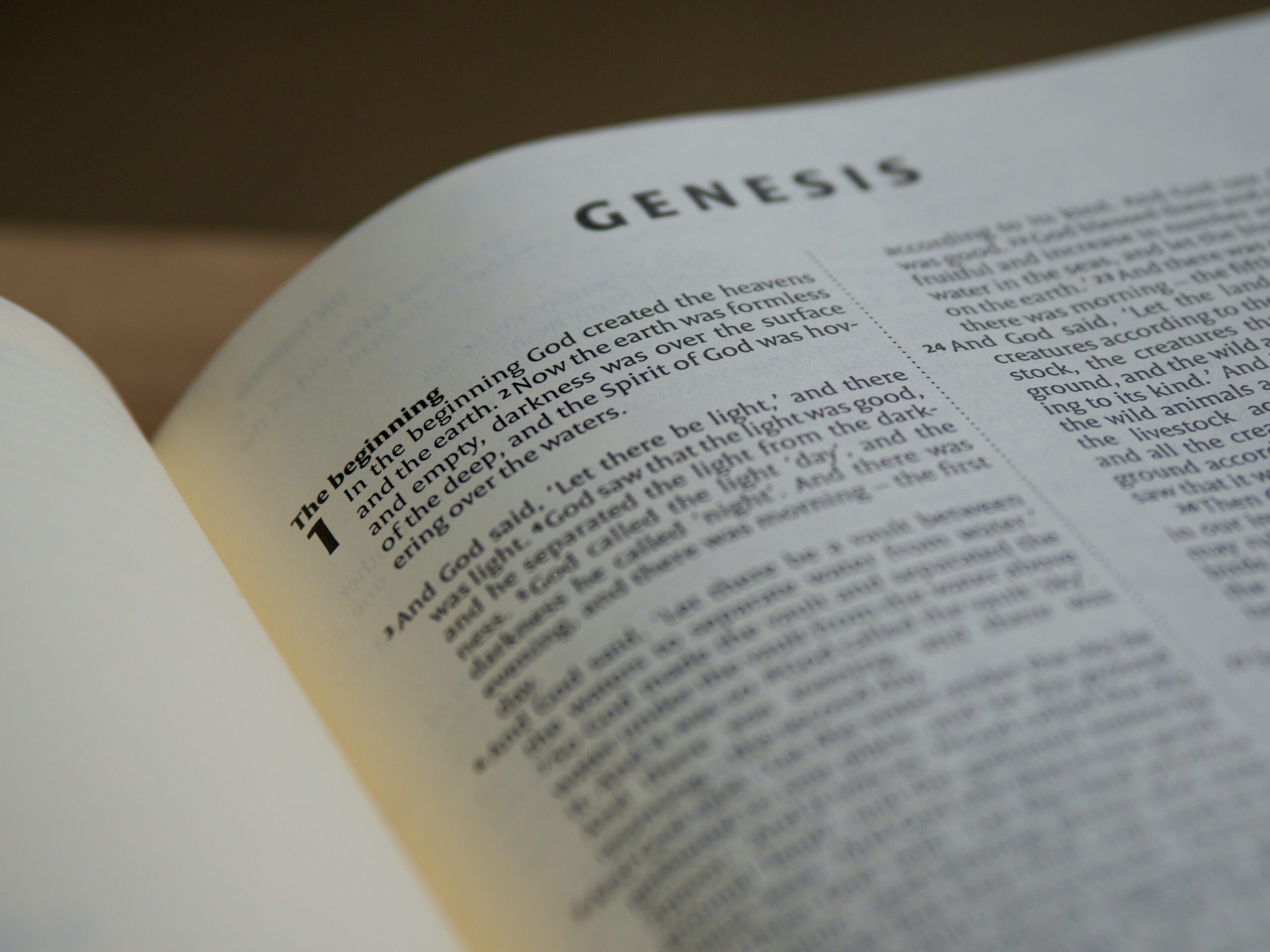| Getting your Trinity Audio player ready... |
More than 250,000 Jews in Central Europe alone converted to Christianity in the 19th century.
The Torah is unique in being the only Holy Book of a religion that was revealed publicly for all to see. Those of all other religions were revealed to just a few privileged individuals. The Torah was revealed to three million or so Jews 3,319 years ago in a public place, Mount Sinai, for all to witness.
Related Study:
Please note that the studies shared on this website are for informational purposes only. Readers are encouraged to critically evaluate the content and not to accept it as absolute or complete without further verification. The views expressed in the studies do not necessarily reflect the opinions of this website.
The Search for the Convergence of the Absolute Beginning and the Doctrine of Creatio ex Nihilo by Fedor Minakov
Abstract:
Science and theology have very different methodology and use different tools. Despite the differences sometimes both disciplines try to answer same question. One of the questions addressed by science and theology is the origin of the universe. Present article is an attempt to describe how certain scientific achievements in cosmology can support biblical message about the beginning of the world. Bible teaches that the world was created by God out of nothing a finite time ago. Current cosmology holds to the view that is widely known as the Big Bang theory. According to this theory the universe appeared out of the state of infinite density around 15 billion years ago. This revolutionary statement implies that modern physicists do not adhere anymore to the view that the universe is eternal. Thus, both Bible and science claim that the universe had the beginning. Some theoretical physicists have proposed that the universe came out of nothing. Analysis shows that although the statement sounds similar to the doctrine of creatio ex nihilo it has different meaning. However, this difference does not annul the possibility of the convergence of two sides.
Introduction
Throughout the centuries many astronomers and philosophers had thought that the universe is eternal. This predominant view has conflicted with the belief that Christian tradition has proclaimed since the very beginning, namely that God created the universe. Since the XXth century things has radically changed. Most of the contemporary cosmologists claim that the universe is not eternal, and increasing number of modern theologians has claimed that God did not create but rather shaped the universe. Such a flip of positions begs the question whether the case can be made for the convergence between Biblical and scientific cosmologies. New astronomical discoveries have prompted Christian scholars to pay attention to the topic of the origin of the universe and write their reflections with renewed enthusiasm. Some thinkers like Paul Copan, William L. Craig and Francis S. Collins argue that both scientific evidences and biblical data point to the fact that the Universe had the absolute beginning in the finite past. Others like Ian Barbour, John Polkinghorne and Mary-Jane Rubenstein avoid this conclusion doubting that the doctrine of creatio ex nihilo represents biblical view and that scientific data can be correlated with the philosophical idea of nothingness presupposed in the doctrine. The task of this article is to compare present state of cosmology as it described by the leading theoretical physicists and philosophers with the biblical view of creation of the universe. The article is dedicated to the description of the theory of absolute beginning as it is supported by observations and is almost unanimously accepted theory of the origin of the universe among modern cosmologists. The paper presents arguments in favor of the doctrine of creation ex nihilo as the biblical view. This article also deals with the correlation of the popular theory of quantum gravity with the doctrine of creation. Proposed by the theory state of “nothingness” has caused some confusion among thinkers when compared to the “nothingness” of the ex nihilo doctrine. The objective of this paper is to find out whether the model of the absolute beginning of the universe converges with the doctrine of creation ex nihilo. The doctrine of creation ex nihilo being the biblical view confirms and complements the standard model of the absolute beginning of the universe and does not contradict to the quantum creation hypothesis. For the support of this thesis the first section is dedicated to the presentation of the basic points of the absolute beginning model. The next section affirms the doctrine of creation ex nihilo as biblical teaching in relation to counterarguments of J. Polkinghorne and I. Barbour. The third section analyses differences in the description of the term “nothingness” in science as the alleged obstacle to the consonance of the two concepts.
I. The Quest for the Beginning of the Universe
“For those looking to bring the theologians and the scientists closer together, there is much in these recent discoveries of the origin of the universe to inspire mutual appreciation.” [ -Francis S. Collins]
The world and the Bible are two sources of divine revelation according to Westminster Confession of Faith (WCF 1.1). Both “books” are true and revealing and both come out of the “mouth of God” according to the Christian view. God speaks the world into existence (Gen. 1:1-2:3) and the Word is breathed out by Him (2 Tim. 3:16). Another feature that they both share in common is the possibility of interpretation. It is here the potential problem arise since the interpretation can be wrong. Theologians exegete the Bible, scientists explore the universe and the history of both theology and science proves the fact that even an interpretation of professionals can be erroneous. Nevertheless, if general and special revelation comes from One source, their proper interpretation would not contradict each other. Moreover, both revelations would complement and verify each other. If both science and theology claim that the universe had the beginning this may at least potentially mean that their agreement indicates correct interpretation of both revelations. It was the prevalent opinion for a great period of time that the universe does not have a beginning. The universe is eternal according to ancient philosopher Aristotle. His ideas on the infinite existence of the universe dominated minds of medieval scientists and were mostly unquestioned until twentieth century. But at the beginning of 20th century scientific understanding of the universe underwent dramatic change due to several significant events. The story may be traced back to Einstein’s formulation of the general theory of relativity in 1915. His calculations argued against a static universe so he modified his equation being sure that it must be wrong. Alexander Friedman and Georges Lemaitre, based on general relativity, formulated the mathematical model which predicted the expansion of the universe in 1920s. In 1929 Edwin Hubble confirmed Friedman-Lemaitre predictions. He discovered by the observation of the redshift of the spectra, which happened to be a Doppler effect, that the universe is expanding. Later on his observation was confirmed by Arno Penzias and Robert Wilson who found cosmic background radiation in 1965. Since then scientists have come to agreement that the universe is actually expanding. The extrapolation of this fact back in time has led them to the conclusion that it may not be eternal but that the universe had a beginning.
In 1996 leading theoretical physicist, Stephen Hawking writes, “Almost everyone now believes that the universe, and time itself, had a beginning at the big bang.” After the series of the revolutionary discoveries in science the cosmologists finally agreed on the model that has been mockingly called by Fred Hoyle the “Big Bang.” According to this model the universe had an absolute beginning in the past out of nothing. According to the big bang cosmogony the universe burst out of a singularity around 15 billion years ago. The point of singularity is the point of zero radius and infinite density of matter and energy. Ukrainian cosmologist, Alexander Vilenkin writes about the singularity theorem, “… as the evolution of the universe is followed backward in time, the density of matter and the curvature of space-time grow without bounds, becoming infinite a finite time ago. The moment of infinite density is a cosmological singularity.” It’s important to note that singularity is the point of not only the origin of matter or energy, but also of the space and time itself. According to such a model it would be improper to say that there was something prior to the singularity because the phrase invokes temporal relations. It is also wrong to imagine a state of singularity somewhere in the empty space since the space itself originated out of this singularity. Philosopher William Lane Craig and physicist James D. Sinclair write, “Moreover – and this deserves underscoring – the origin it posits is an absolute origin ex nihilo. For not only all matter and energy but also space and time themselves come into being at the initial cosmological singularity… On such a model the universe originates ex nihilo in the sense that it is false that something existed prior to the singularity.” This model is known as the Hawking-Penrose theorem of singularity.
However, it is believed that the origin of the universe cannot be described solely by the laws of general relativity, because they work on the large scales. Since the universe at the beginning was of the size of subatomic particles, it must have been governed by the laws of quantum physics which seem to be in conflict with general relativity. The certainty of scientific knowledge fades when the universe approaches 10-43 seconds of Planck time. This is the time when the universe is so small that known physical laws break down. The problem with quantum mechanics is that it is a relatively new field with some yet unknown and unverifiable variables. John Polkinghorne writes about this period, “Since there is still no fully satisfactory reconciliation between quantum theory and general relativity (the modern theory of gravity and so the basis of all cosmological theorizing), the many discussions of quantum cosmology that are offered in the popular literature must be treated with a degree of caution.” Since general relativity could not fully explain the processes on the level of nuclear physics, scientists came up with a number of theories that could reconcile both gravity and quantum mechanics and explain the state of the very early history of the universe and perhaps avoid the conclusion of its absolute beginning. One of the famous examples of the attempt to present the model of the universe without the beginning is the so-called “no boundary” theory developed by Stephen Hawking and James Hartle. In that case the universe “would just be” without a precise point of time.
The problem with this theory as Hawking himself states is that it does not represent reality, but it is purely an abstract idea with no ontological confirmation. Other theories that were trying to extend the life of the universe into past-eternity, such as eternal inflation, cyclic and “emergent” universe, have encountered with the singularity theorem published by Alexander Vilenkin, Arvind Borde and Alan Guth in 2003.25 In 2012 conference in Cambridge Vilenkin presented his paper in which he refused all scenarios for the past-eternal universe one by one on the basis of his theorem. He concludes: “Did the universe have a beginning? At this point, it seems that the answer to this question is probably yes. Here we have addressed three scenarios which seemed to offer a way to avoid a beginning, and have found that none of them can actually be eternal in the past.” Common interpretation of the existence of the universe today is that it did have a beginning. As Craig and Sinclair conclude, “It seems that the field of cosmology, therefore, yields good evidence that the universe began to exist.” One can say that since there was no time, space or matter prior to the big bang, the universe became out of nothing. In that case harmony could be found between the biblical view on creation and current cosmological views on the origin of the universe. That can be true only if the Bible does state that God created the world ex nihilo and if ‘nothing’ of the physics corresponds to the ‘nothing’ of the Bible. The next two sections are dedicated to these two questions.
II. Creation is not Mere Sustenance
In his attempt to combine contemporary hypothesis of the quantum cosmology with the Christian theology Polkinghorne writes, “The thought of the Creator’s sustaining (emphasis added) the world in being has traditionally been expressed in Christian theology by the phrase creation ex nihilo, creation out of nothing. It does not mean that God used some peculiar sort of stuff called nihil from which to make the universe, but that the universe is at all times held in being, rescued from the abyss of nothingness, by the divine will alone.” In this statement he replaces the question of the absolute ontological origin of the universe by shifting the emphasis on the dependence of the whole universe from God. While it is true that God sustains the universe and that He is the ultimate answer to the question of why universe exists, the doctrine of creation also states that God actually brought the universe into existence out of nothing and that God is the only One Who exists eternally.
The philosopher Ian Barbour states that the ex nihilo creation is not the Biblical doctrine but, rather it is latter invention of the fourth century theologians. He states that Genesis 1 teaches that God created out of pre-existent matter. Although the passage of Gen. 1 is much debated, Barbour’s statement is not correct. There are solid exegetical grounds that conclude that the Bible does teach ex nihilo creation. In his book on Genesis 1-4 John Collins unfolds the arguments in support for ex nihilo creation. It is worth notice that ancient translation of the Genesis, like LXX and Vulgate and Masoretic accent marks render the first verse not as a temporal clause, “In the beginning God created heavens and earth.” Biblical scholar Claus Westermann in his commentary translates the passage similarly on the basis of the context of the chapter. Victor P. Hamilton notes, “In our opinion valid lexical, grammatical, syntactical, comparative, and stylistic arguments have been advanced to substantiate the translation In the beginning.” The normal flow of hebrew narrative includes perfect verbs at the beginning as a description of the prior to the story events. The verb bara is preserved in the OT only for the God as an actor. This means that God’s creation acts are distinct from the creaturely deeds.39 2 Maccabees 7:28-29, 1QS 3:15 and other Jewish writings indicate that Jews understood Gen. 1:1 as the ex nihilo creation.40 The context of Genesis 1 in contrast with other ANE cosmogonies describes God as the One who has absolute power and nothing can be equal with Him. He simply says, “Let there be light” (Gen. 1:3), and the light appears. He does not form it He just brings it into existence by His Word.41 Ian McFarland, who doesn’t rely on Gen.1:1 as the primary text for the doctrine of ex nihilo, nevertheless sees that preexistence of matter in Gen. 1:2 may be dubious in light of such verses as Isa. 45:7, Ps. 148:4-6, Ps. 33:6-9.42 Both passages Rom. 4:17 and Heb.11:3 speak about the calling the universe into being out of non being by His Word. Heb. 11:3 states that everything that is seen (βλεπόμενον) has been created (κατηρτίσθαι) not of visible matter (μὴ ἐκ φαινομένων). Thus these passages exclude the creation out of some eternal substance. Other passages like Rom. 11:36, 1 Cor. 8:6; Eph. 3:9; Col. 1:16; Rev. 4:11; Pr. 8:22-26; Jn. 1:3 can be naturally read from the perspective of the creation ex nihilo.
Bible teaches that God created the world not out of some pre-existent matter or substance but simply by His free will in the act of speech. He is not just sustainer of all that is, but the originator ex nihilo of the entire universe. It has been shown from section I that the entire universe according to the recent cosmological models had the beginning. So far the science and the Bible agree on the point that the known universe is not eternal. The third section evaluates the meaning of ‘nothing’ in recent quantum models of the universe.
III. Beyond the Beginning
The commonly embraced conclusion of the beginning of the universe has caused some physicists to think on the question of the causes of its beginning. They are pretty certain about the evolution of the universe after the 10-43 seconds of the Plank time. This means that most cosmologists are confident that the universe began a finite time ago. But they are not sure what was happening before “about a thousand millionth of a second” from the beginning and they do not know what caused the inception of the universe. Some theoretical physicists have tried to explain the process of the origin of the universe. One of the common explanations is the theory of quantum creation that claims that the universe came “out of nothing.” Such explanations are admittedly highly speculative but nevertheless very popular. As one of the scientists states, “The theory of quantum creation is no more than a speculative hypothesis. It is unclear how, or whether, it can be tested observationally.” Since quantum theories of cosmology (at least at the moment) cannot be verified by any empirical data their conclusions should be treated with caution. The question relevant to the topic of present work can be raised, whether “nothing” of quantum creation theory is equal to “nothing” of the Biblical view. Alexander Vilenkin in his article states:
- If all the conserved numbers of a closed universe are equal to zero, then there is nothing to prevent such a universe from being spontaneously created out of nothing (emphasis added). And according to quantum mechanics, any process which is not strictly forbidden by the conservation laws will happen with some probability… One might imagine that closed universe are popping out of nothing like bubbles in a glass of champagne, but this analogy would not be quite accurate. Bubbles pop out in liquid, but in the case of universes, there is no space out of which they might pop. A nucleated closed universe is all the space there is, aside from the disconnected spaces of other closed universes. Beyond it, there is no space, and no time. What causes the universe to pop out of nothing? No cause is needed.
This theory falls into the category of quantum gravity models. In the theory of quantum creation the emergence of the universe is described by the laws of quantum mechanics and compared to a tunneling of the particles into existence out of the quantum fluctuation of the electric field in the vacuum. In the quote above, Vilenkin uses quantum mechanics to talk about probability of the appearance of the universe “out of nothing.” But it seems unreasonable to talk about the laws apart from something that is governed by these laws. As McGrath rightly notice, “After all, laws themselves do not create anything, in that they are merely a description of what happens under certain conditions.” What is called “nothing” by Vilenkin is not nothing but a particular system that is described by a particular laws that govern this system. Talking about quantum creation theory, Stephen Barr writes, “Let us look at the ‘no-universe state’ that precedes (if we may use that word) the appearance of the universe. In a rather obvious sense the no-universe state is not really ‘nothing.’ It is a state! It is a specific ‘state’ of a specific, complicated quantum ‘system.’” The “nothing” of the doctrine of ex nihilo creation claims that there is no “system” with its laws that would exist co-eternally with God. If there was a “system” of the “no-universe state,” it should have been created by God.
Vilenkin concludes, “A deep mystery remains. The laws of physics that describe the quantum creation of the universe also describe its evolution. This seems to suggest that they have some independent existence.” This commentary shows that scientific essays sometimes may contribute to the metaphysical questions. Methodologically, scientists cannot go any further than make the conclusion that the universe had a beginning. As it has been shown, they may even formulate hypothesis on the process of the absolute origin on the basis of the laws that they discovered in the given space-time universe. But, if the creation is explained by the same laws of the created universe, than as Vilenkin points out those laws appear to be transcendent to the universe itself. Quantum gravity cosmologies have some inconsistencies beside the problem of their being highly speculative. If a particular system is eternally producing different kinds of universes, as Vilenkin may point out, then by now all these universes would have inevitably collided with each other given the eternal past of such systems. To avoid such conclusions, one has to admit the beginning of a system itself.56 But, the most consistent model which is confirmed by physical observation is the cosmological model of the big bang. This points to some intriguing metaphysical questions. If universe is not eternally existent, why does it exist at all? What or who brought it into being? Or, in the case of the quantum creation scenario, who/what imposes laws onto this void and creates the system in which these laws would produce our universe? These questions find their answers in the Bible on the first page which boldly states, “In the beginning God created the Heaven and the Earth” (Gen. 1:1).
Conclusion
Given that the universe and the Bible are both sources of the divine revelation they potentially may verify each other’s interpretation. The present common interpretation of cosmogony of the universe states that it had a beginning a definite time ago. This conclusion is strongly affirmed by the number of scientific observations and discoveries such as the expansion of the universe and the microwave cosmic radiation. Despite the fact that some theologians like Rubenstein, Walton and McFarland do not see that Genesis 1:1 supports the doctrine of creation ex nihilo, exegesis of this text shows that it does imply the doctrine although it does not explicitly state it. The meaning of the word “nothing” is not the same in theology and recent theories of quantum gravity. The “nothing” of quantum gravity is often “something” of philosophy. But this fact does not jettison the possibility of the convergence of cosmology and Christian theology because in both scenarios the absolute beginning is affirmed. Moreover the quantum creation hypothesis is admittedly lacks of empirical verification Science is the sphere of human activity that is rapidly developing. It does not stand in one place, but is constantly moving proposing new ideas of the interpretation of the world. The case can be made however that its conclusions about the beginning of the universe will only be reinforced because the other divine revelation (i.e. Bible) confirms current scientific knowledge of the universe. Thus the model of absolute beginning finds its confirmation in the biblical doctrine of creation ex nihilo and can be complemented by the conclusion that science is not able to make, the conclusion that God is the ultimate cause of the universe.
License: CC BY-NC 4.0













